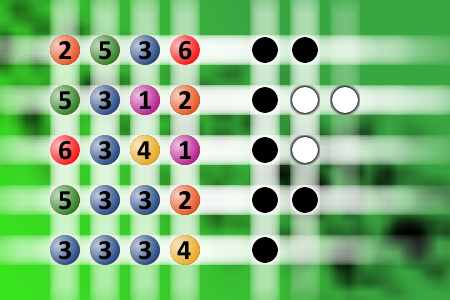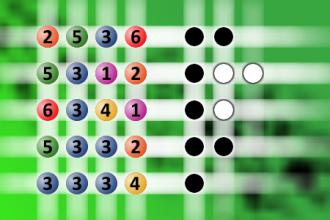Find the right combination
The computer chose a secret code (sequence of 4 digits from 1 to 6). Your goal is to find that code. Black circles indicate the number of hits on the right spot. White circles indicate the number of hits on the wrong spot.Correct answers: 21
The first user who solved this task is Nílton Corrêa De Sousa.
#brainteasers #mastermind

Old friends
Mary and Jane are old friends. They have both been married to their husbands for a long time; Mary is upset because she thinks her husband doesn't find her attractive anymore.
"As I get older he doesn't bother to look at me!" Mary cries.
"I'm so sorry for you, as I get older my husband says I get more beautiful every day." replies Jane.
"Yes, but your husband's an antique dealer!"

